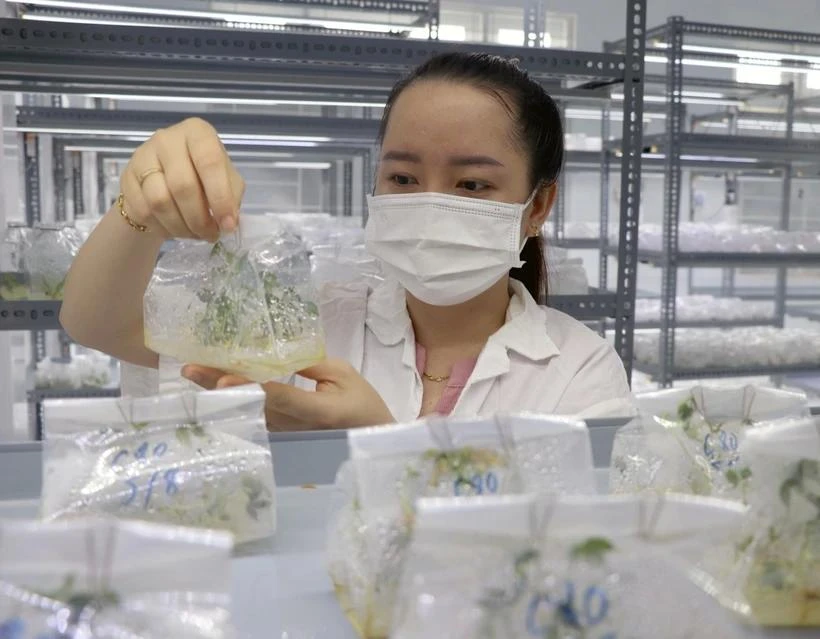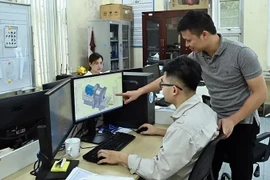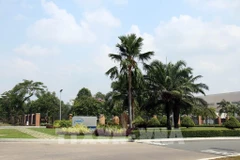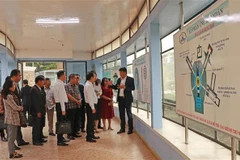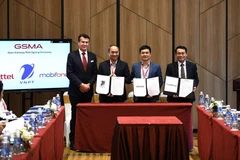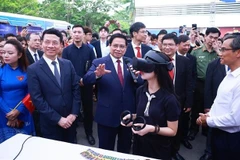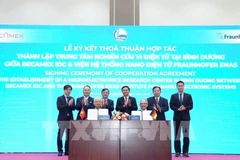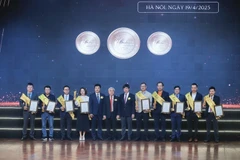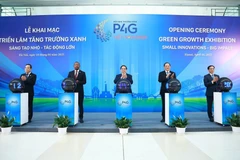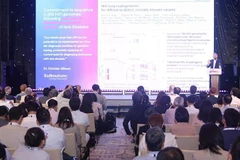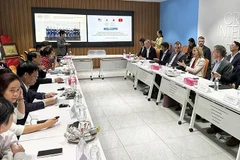Hanoi (VNA) – While innovative support models in universities have become the norm in the world for half a century, it remains a new thing in Vietnamese tertiary education establishments. Experts said many bottlenecks, from mechanisms to resources and mindset, should be removed to promote innovation in universities.
According to Deputy Minister of Education and Training Hoang Minh Son, universities in the world play the pioneering role in innovation networks. They have three main missions, namely training high-quality human resources, conducting scientific research, and transferring knowledge and research outcomes for application in reality.
Therefore, scientific-technological development in universities provides the driving force of national growth and guidance for national development, Son said.
He added that in Vietnam, tertiary education establishments have made progress in innovation which however, is yet to meet expectations.
“The situation is the result of policies as well as the awareness of universities themselves about the role of innovation and research. The universities have focused their attention on training, with inadequate attention paid to research, innovation, knowledge transfer, intellectual property and startup support,” the deputy minister said.
His view was shared by Dr. Nguyen Trung Dung, General Director of BK Holdings under the Hanoi University of Science and Technology and Chairman of the Vietnam University & College Innovation & Startup Network – VNEI.
According to Dung, while innovative support models in universities have become the norm in the world for half a century, Vietnam is now only taking the first step in this direction. He said around 90% of Vietnamese universities have established their own innovation centres, which used to be a common model in the world in the 1980s and 1990s. At present, innovation centres are now set up outside universities or shared among many establishments.
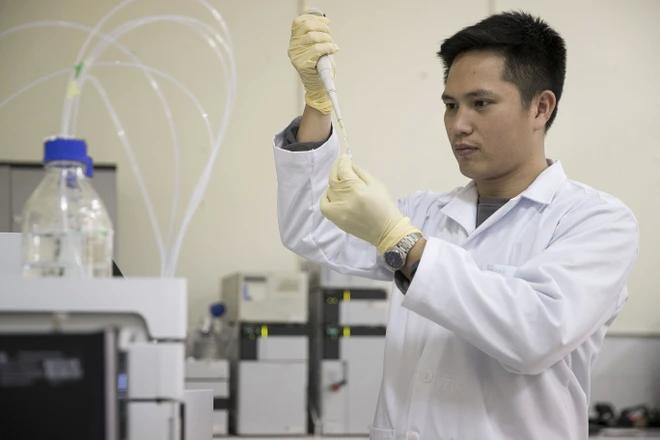
From his own experience and observation, Dung said the majority of Vietnamese universities just aim for increasing recruitment, school fees and training quality. Innovation stops at startup contests for students. “Innovation in most Vietnamese universities is only a word and has not been translated into real action, which is a sad reality,” he said.
Ta Dinh Thi, Vice Chairman of the Committee on Science, Technology and Environment of the National Assembly, echoed this remark. He added that universities are focusing on student startup while neglecting alumni and linkages with research circles and other universities.
Deputy Minister Son emphasised that the Government has designated innovation as one of the three strategic breakthroughs, but this is the newest and most difficult task for universities besides their traditional missions of training and researching.
According to him, universities are facing problems ranging from obstacles in mechanisms and policies to limitations in human and financial resources. The number of international publications by Vietnamese universities has surged in recent years, but few of them are useful inventions and solutions that can be turned into products and services.
Son said collaboration among all stakeholders, from State management agencies to enterprises and universities, is needed to handle those problems.
Agreeing with the deputy minister, Dr. Pham Hong Quat, Director of the National Agency for Technology Entrepreneurship and Commercialization Development at the Ministry of Science and Technology, said the sharing model is the shortest and most economical way to innovation.
Explaining further about institutional obstacles, Quat said the Law on Public Employees stipulates that cadres, lecturers, and managers of universities are not allowed to join companies, and public assets cannot be used by enterprises. Research outcomes are public assets and thus cannot be used to share and be used in companies.
“Those regulations are the lock. Research outcomes should be used to promote development of the entire society, not a single organisation. The sharing model replacing the ownership model is now the trend in many countries,” he said.
Another challenge to the commercialisation of research outcomes is the mindset of scientists. Quat said many Vietnamese researchers tend to keep the research outcomes for themselves instead of sharing them with colleagues or companies. “Innovation cannot be promoted without an open mind,” he said.
Quat also urged researchers to shift their thinking from “selling research outcomes” to “selling researching capacity”, noting that research based on reality’s demand and enterprise needs will have greater value of applicability.
Connectivity is another challenge, Quat said, citing great examples like a scientific park in Switzerland that connects enterprises and universities with the government./.
